Have you ever stopped to think about how amazing sea otters are? You might picture them as adorable little creatures floating on their backs, but there’s so much more to these furry marine mammals. They play vital roles in their ecosystems and have some fascinating characteristics that make them stand out. Let’s dive into why sea otters could very well be the unsung heroes of the animal kingdom.
1. They’re Masterful Tool Users
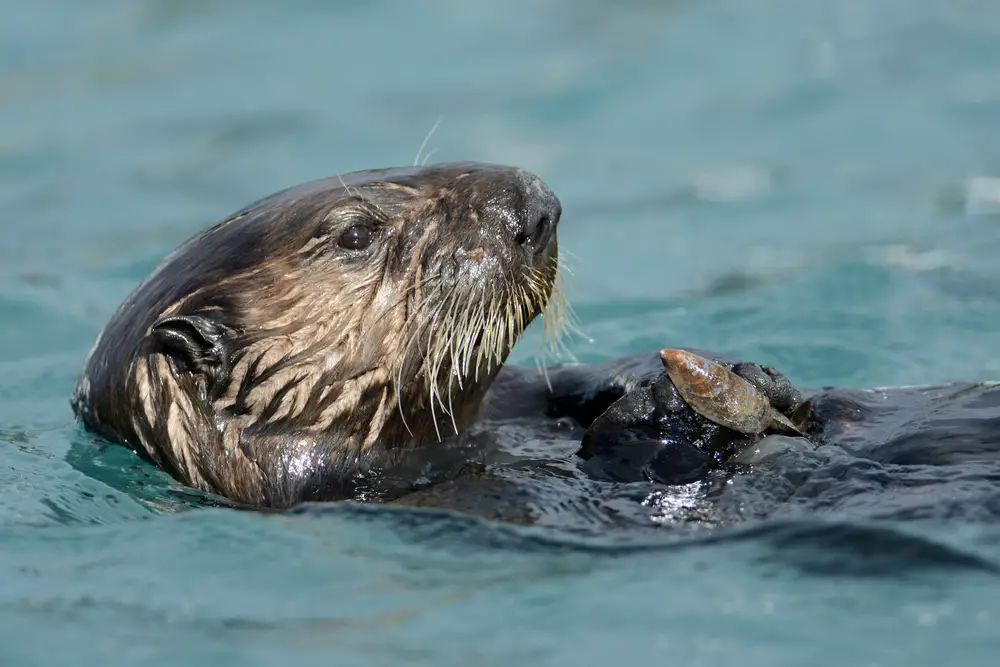
Sea otters are one of the few non-human animals known to use tools. They cleverly use rocks to crack open shellfish, which is not just a fun fact but a brilliant survival technique. According to a study by primatologist Dr. Jane Goodall, the use of such tools indicates high intelligence and problem-solving ability. These skills are not just inherent but taught from mother to pup, indicating a culture of learning within their communities. So, when you see a sea otter smashing a shell with a rock, you’re witnessing a bit of marine ingenuity.
The ability to use tools also helps them access a vital part of their diet, which many other animals can’t easily reach. This tool use allows sea otters to thrive in their environment and maintain their energy levels. It’s a testament to their adaptability and intelligence, qualities that are crucial for survival in the wild. This skill makes them unique among marine mammals and highlights their crucial role in marine ecosystems. In other words, these otters are not just cute—they’re smart.
2. They’re Ecosystem Engineers
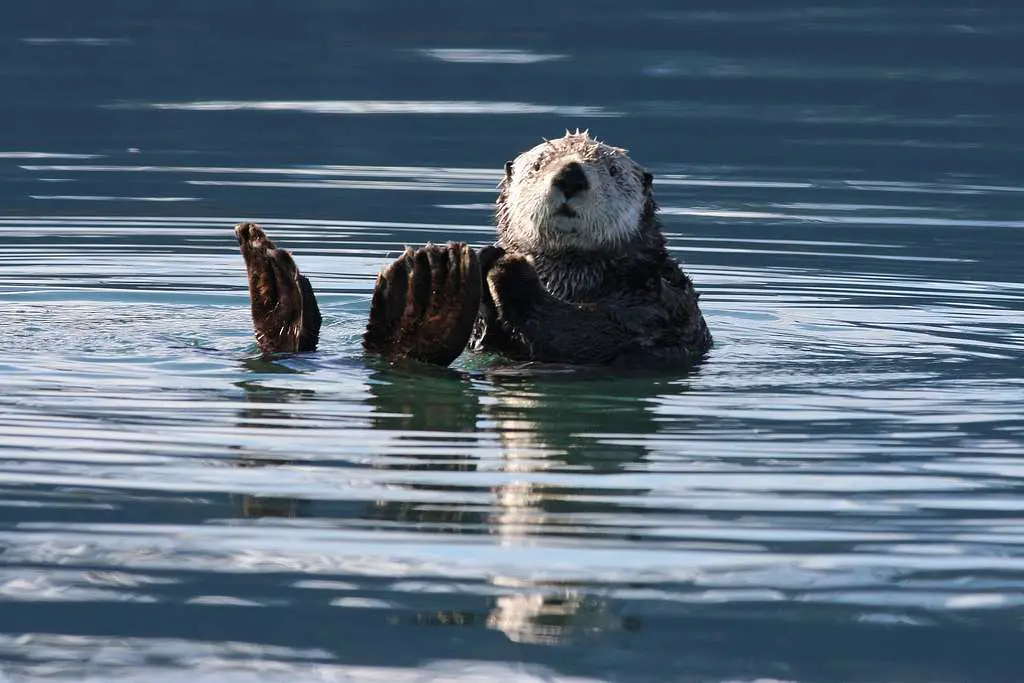
You might not think of sea otters as capable of building or engineering, but they are essential to the health of their habitats. By feeding on sea urchins, they keep the population of these spiny creatures in check. This balance is crucial because sea urchins can devastate kelp forests if left unchecked. These forests are vital marine habitats that support a wide variety of life, acting as underwater nurseries and food sources for numerous species.
Without sea otters, the ecosystem could face severe disruptions. When otters were hunted nearly to extinction, the marine environments they once helped maintain were thrown off balance. The resurgence of otter populations in some areas has shown how quickly ecosystems can recover with their presence. This makes sea otters key players in maintaining the health of their local environments. Their role as ecosystem engineers proves they’re more than just adorable faces in the animal kingdom.
3. They’re Insulation Experts
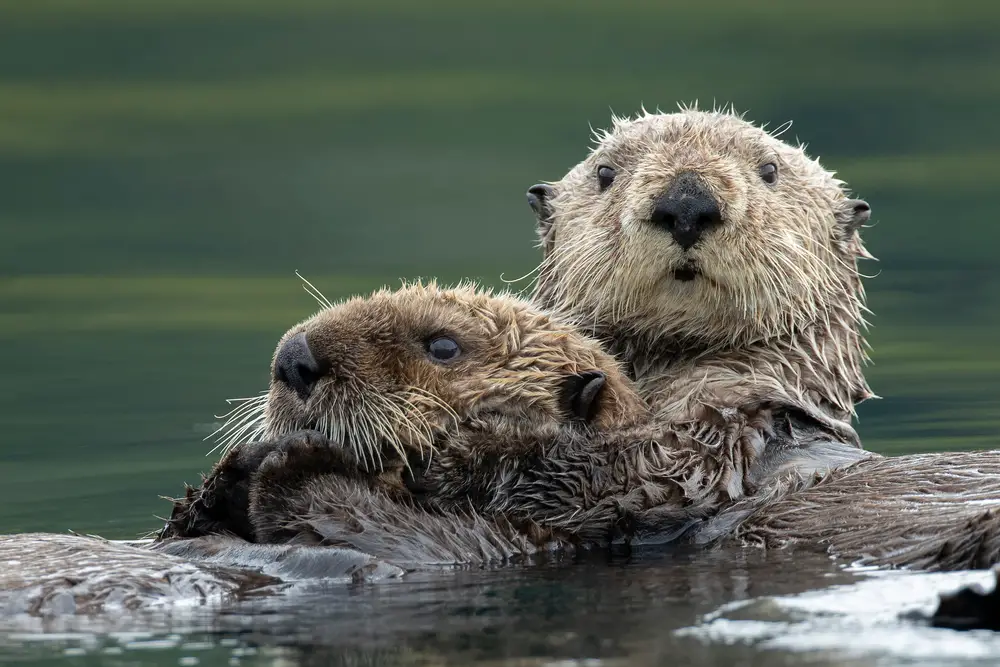
Unlike most marine mammals, sea otters don’t rely on blubber for warmth. Instead, they have the densest fur in the animal kingdom, with about a million hair strands per square inch. This thick fur traps air and provides insulation against icy waters. Marine biologist Dr. Liz Bonnin notes that this unique adaptation is not just about staying warm; it’s a remarkable evolutionary advancement. The otter’s high-maintenance fur requires regular grooming to maintain its insulating properties.
Their grooming habits are not just about keeping fluffy; it’s critical for their survival in cold waters. Without this meticulous grooming routine, they would be susceptible to hypothermia. This daily ritual shows their dedication to self-care and the importance of their natural insulation. Sea otters have adapted in a way that allows them to inhabit colder regions where other mammals might struggle. Their fur is a testament to their resilience and adaptability.
4. They Have An Appetite For Conservation
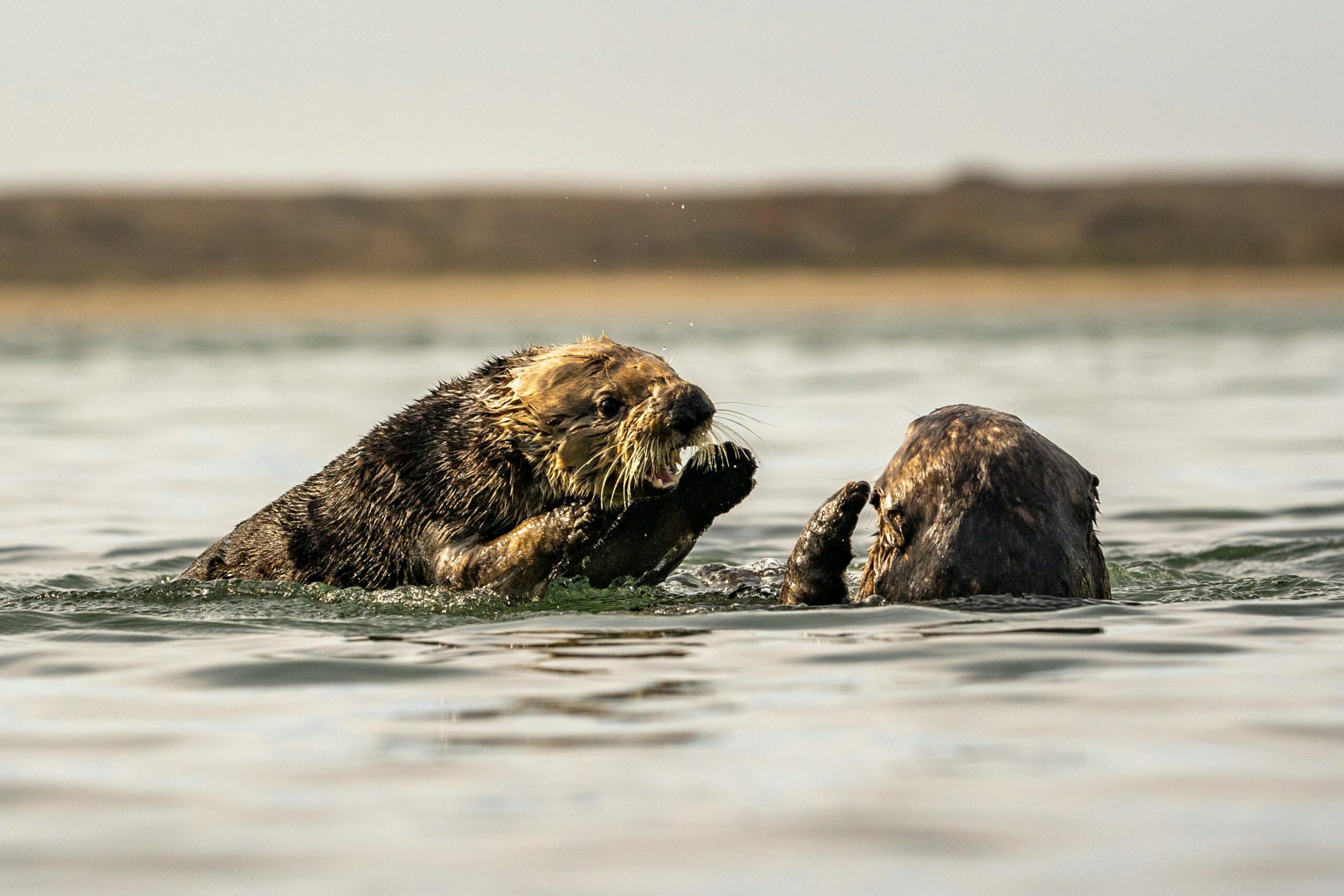
Sea otters have quite the appetite, consuming up to 25% of their body weight daily. This might sound excessive, but their high metabolism is essential for staying warm and active. Their diet mainly consists of sea urchins, crabs, and fish, which helps control prey populations and maintain balance in their ecosystem. By eating sea urchins, they prevent these creatures from overgrazing on kelp forests, which are critical marine habitats.
Their eating habits have a ripple effect on the environment. A balanced ecosystem supports a diversity of marine life, from the smallest fish to the largest predators. The presence of sea otters can create a cascading effect of positive changes in the marine food web. This makes their role in ocean conservation an important one. In essence, their big appetites help keep the ocean’s intricate systems running smoothly.
5. They’re Social Creatures
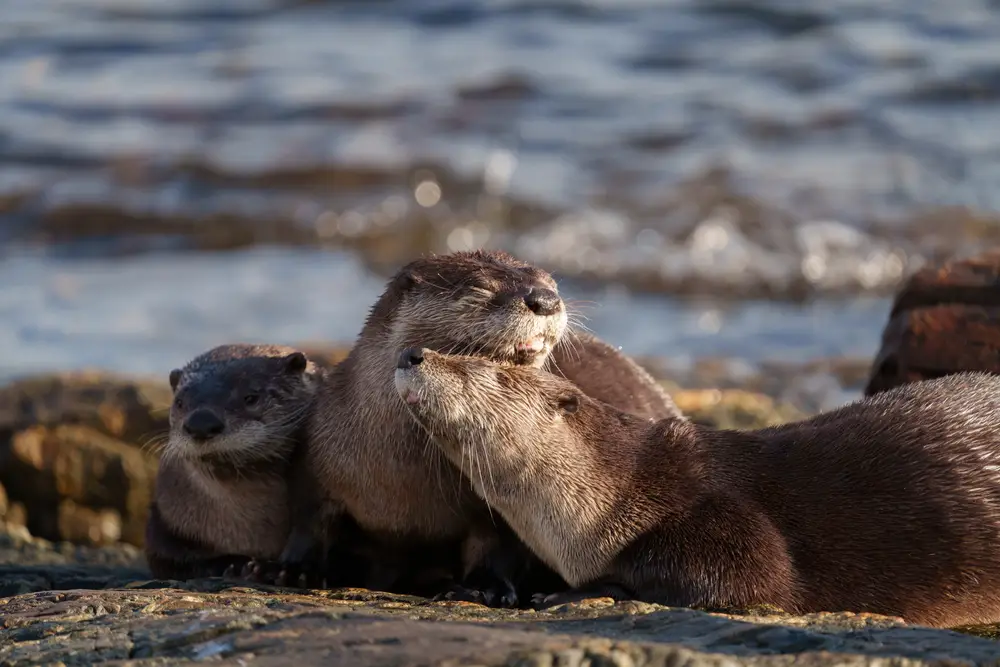
Sea otters are incredibly social animals, often seen floating together in groups called rafts. These rafts can consist of a few otters or sometimes up to a hundred, demonstrating their need for social interaction. The Monterey Bay Aquarium highlights that this behavior strengthens social bonds and offers protection from predators. Within these groups, they communicate and share resources like grooming areas or favored food spots. This camaraderie is vital for their well-being and survival.
Their social nature also plays a role in their reproductive success. Female otters teach their pups crucial survival skills within these social structures. This education is essential for the pups’ development and future independence. The communal aspect helps ensure that every otter has the chance to thrive in its environment. These social interactions reveal the importance of community and cooperation among sea otters.
6. They’re Natural Pest Controllers
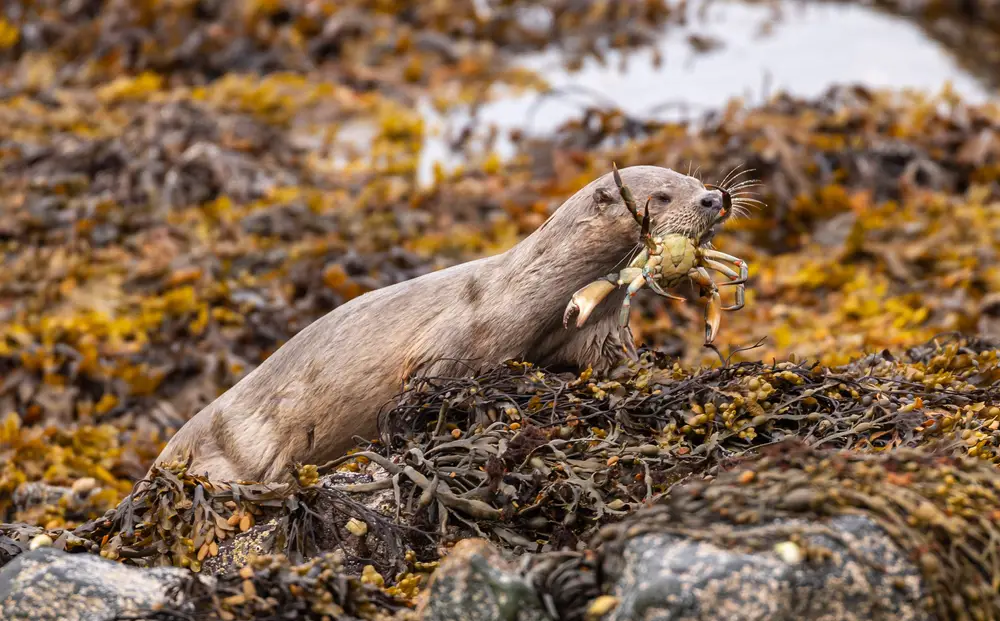
Sea otters play a crucial role in controlling the populations of various marine invertebrates. By doing so, they help maintain the delicate balance of their ecosystem. Their favorite snacks include sea urchins, crabs, and snails, all of which can cause damage if left unchecked. This natural pest control helps promote healthier marine environments where biodiversity can flourish. Without their presence, certain species could dominate and potentially harm the underwater ecosystems.
The balance they provide is essential for the sustainability of kelp forests and other marine habitats. These areas are vital for the ocean’s health, acting as carbon sinks and supporting vast biodiversity. The otters’ role in pest control is a prime example of nature’s checks and balances at work. By preying on these invertebrates, they prevent any one species from becoming too dominant. This proves that even the smallest actions can have significant impacts on the environment.
7. They’re Climate Change Champions
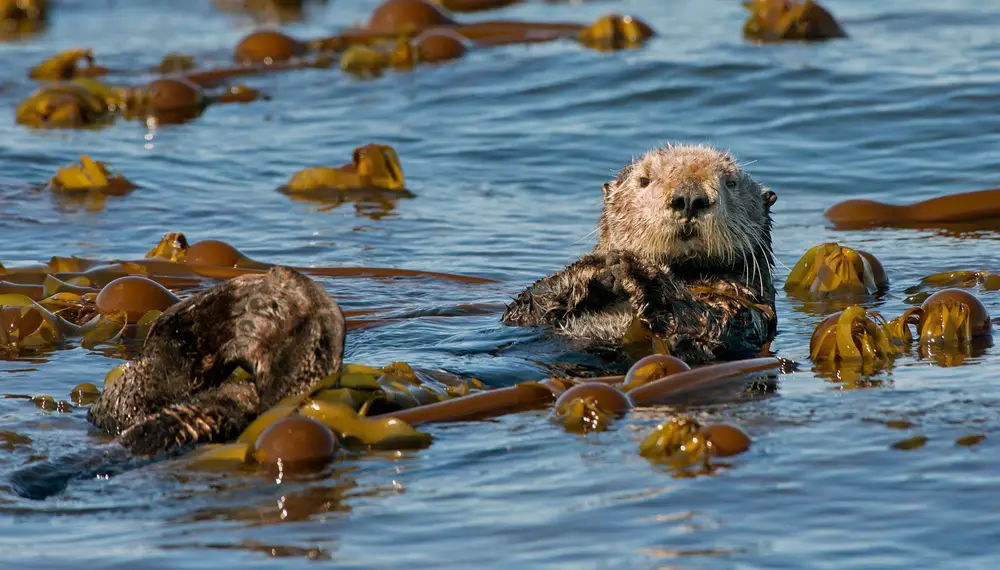
Kelp forests, which sea otters help preserve, are essential in the battle against climate change. These underwater forests absorb carbon dioxide from the atmosphere, acting as carbon sinks. According to climate scientist Dr. Sylvia Earle, maintaining healthy kelp forests through the presence of sea otters is crucial for carbon sequestration. By keeping sea urchin populations down, otters ensure these carbon-absorbing plants can thrive. This provides a natural way to mitigate some impacts of climate change.
Their contribution to combating climate change is a poignant reminder of the interconnectedness of all life on Earth. Without sea otters, these kelp forests could be decimated, reducing their ability to sequester carbon. The maintenance of these habitats is critical for reducing atmospheric carbon levels. This makes the sea otter an unlikely but essential ally in our fight against global warming. Their impact on the environment illustrates a small creature’s potential for significant change.
8. They’re True Guardians Of Biodiversity
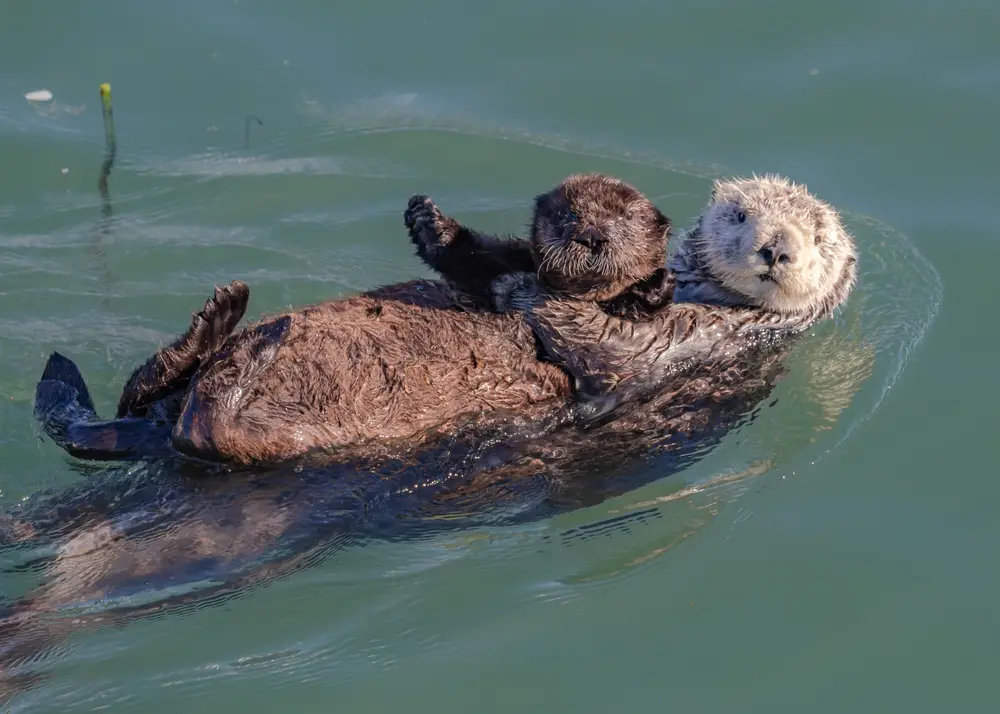
Sea otters play a strategic role in promoting biodiversity within their ecosystems. By feeding on dominant species like sea urchins, they allow for a variety of other species to thrive. This diversity is crucial for a healthy and resilient ecosystem capable of withstanding environmental changes. Their presence ensures that no single species becomes overwhelmingly dominant, which can lead to ecological imbalances.
This balance they maintain allows for a greater variety of organisms to flourish. The kelp forests, which benefit from their predatory habits, provide habitat for countless marine species. In this way, sea otters indirectly support a web of life far more extensive than their immediate surroundings. Their impact on biodiversity highlights the complex interdependencies within ecosystems. These connections underscore the importance of each species in maintaining the health of our planet.
9. They’re Stewards Of The Sea
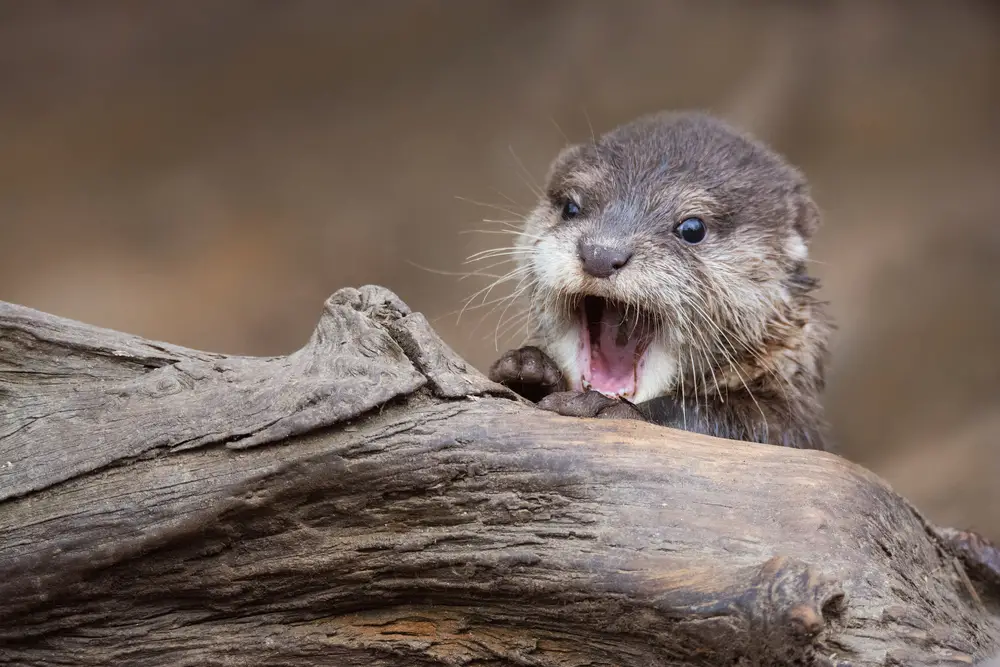
The role of sea otters extends beyond their immediate surroundings, impacting entire marine ecosystems. As stewards of the sea, they help maintain the balance and health of their habitats. Their interactions with other species set off a chain reaction that benefits the broader marine environment. These interactions play a vital role in the sustainability of the oceans, promoting healthier ecosystems.
Their stewardship is a crucial element in preserving marine life for future generations. By maintaining the delicate balance of the ocean’s food chain, they support a wide array of marine species. This not only ensures the survival of countless organisms but also the health of the ocean itself. The stewardship role they play highlights the importance of balanced ecosystems for the planet’s overall health. In a world facing numerous environmental challenges, their contributions are invaluable.
10. They’re Adorable Ambassadors
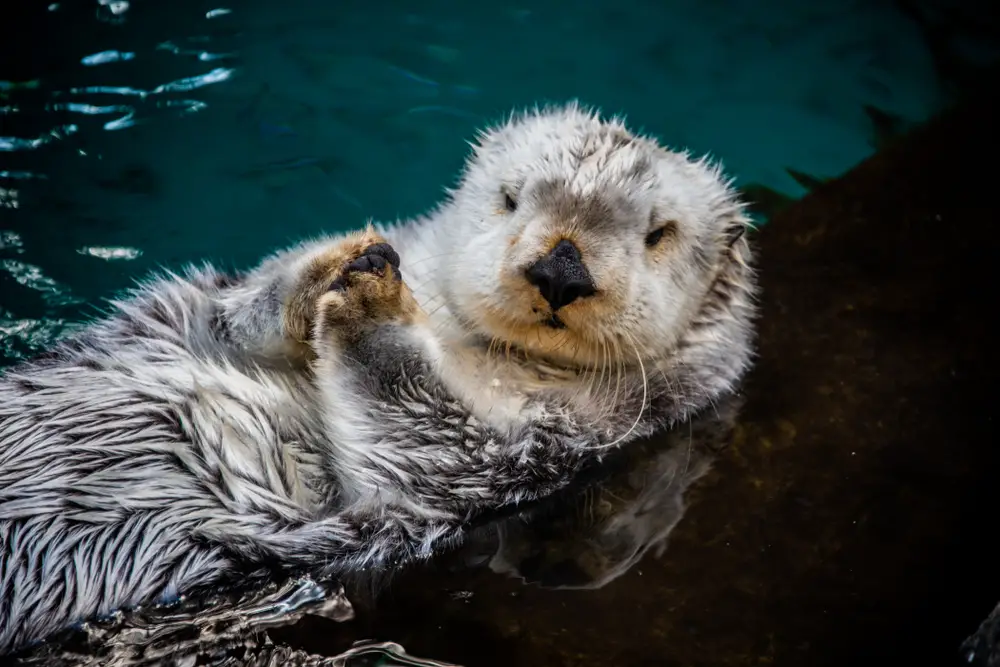
While sea otters are serious about their ecological roles, they also serve as ambassadors for marine conservation. Their undeniable cuteness draws public interest and attention to the plight of endangered marine habitats. This attention helps raise awareness and support for conservation efforts, benefiting countless other species. As ambassadors, they bridge the gap between humans and the natural world, fostering a sense of empathy and responsibility.
By captivating public interest, sea otters can inspire conservation initiatives and policies aimed at protecting their habitats. Their story is a powerful reminder of the beauty and intricacy of marine ecosystems. The charm of sea otters serves as a tool for education and advocacy, making conservation efforts more relatable and impactful. As we learn more about their lives and challenges, we become more invested in their well-being. Their role as ambassadors highlights the power of connection in driving meaningful change.
11. They’re Resilient Survivors
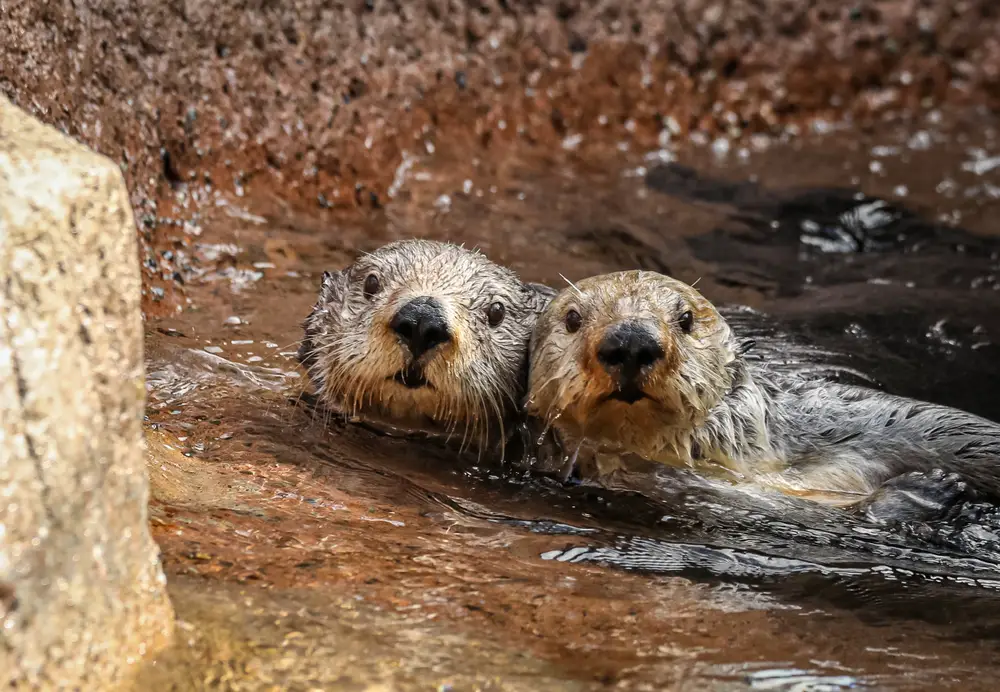
Sea otters have faced numerous challenges throughout history, yet they continue to persevere. Once hunted to near extinction for their luxurious fur, they have made a remarkable comeback in some areas. Their resilience is a testament to their adaptability and the importance of conservation efforts. Despite facing threats like oil spills and habitat loss, they continue to fight for survival in their natural habitats.
Their journey is a story of survival against the odds and a testament to the strength of the natural world. Through conservation efforts and public awareness, sea otters have been given a second chance. Their resurgence is a reminder of the power of nature to heal and recover when given the opportunity. This resilience inspires hope and underscores the importance of protecting endangered species. Their story is a symbol of the potential for recovery and renewal.
12. They’re Symbols Of Recovery
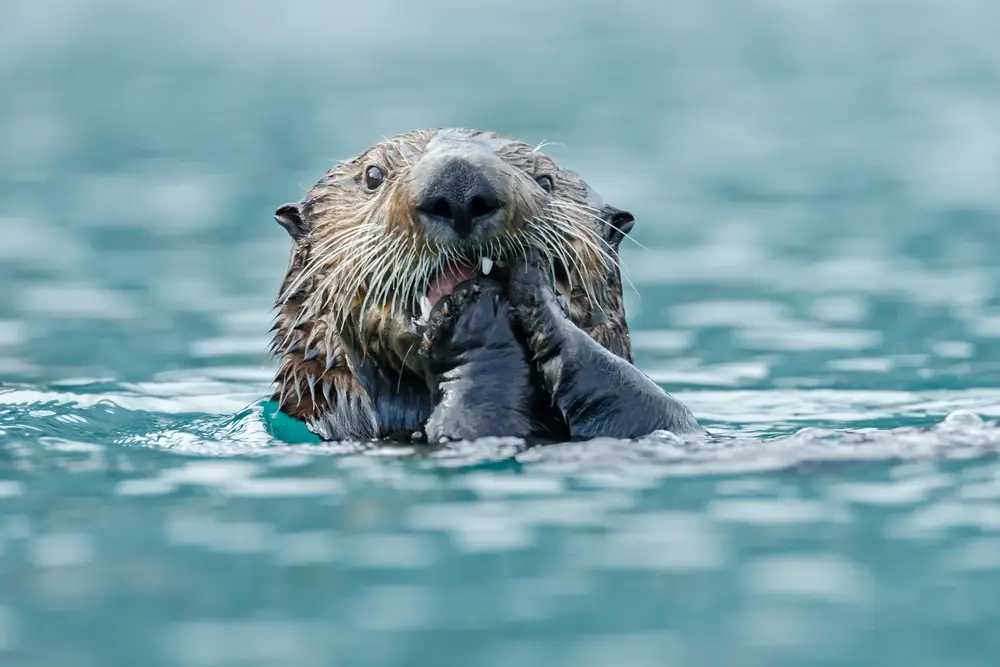
The comeback of sea otter populations in some regions is a powerful symbol of environmental recovery. Their return to habitats where they were once nearly extinct demonstrates the impact of effective conservation measures. This recovery is not just about restoring a single species but reviving entire ecosystems that rely on their presence. It shows that with concerted efforts, wildlife populations can rebound and ecosystems can be restored.
This symbol of recovery is an encouraging example for other conservation projects worldwide. It emphasizes the power of human intervention in reversing environmental damage and promoting biodiversity. The story of sea otters is a hopeful one, illustrating that positive change is possible with dedication and action. Their successful resurgence serves as a model for other endangered species and ecosystems. This recovery reminds us that the fight for conservation is worth every effort.
13. They’re A Vital Link In The Chain
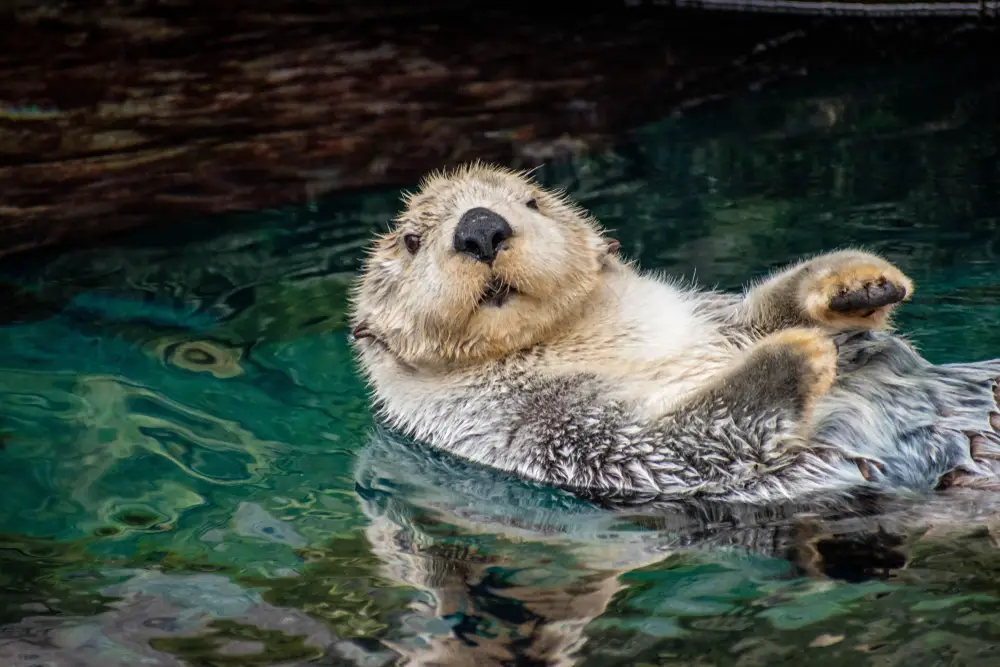
Sea otters are a crucial link in the marine food web, playing an integral role in maintaining ecological balance. Their presence ensures that key species like sea urchins do not overpopulate and destroy vital habitats. This balance is essential for the sustainability and health of marine environments, supporting a diverse array of life forms. By maintaining this balance, sea otters contribute to the overall stability of the ocean’s ecosystems.
Their role in the food web underscores the interconnectedness of all living things. Each species, no matter how small, plays a part in the larger ecological picture. Their importance in this chain of life highlights the need for their protection and the conservation of their habitats. The sea otter’s role as a vital link in the chain is a reminder of the complexity and beauty of the natural world. Protecting them is essential for the health and sustainability of our planet’s marine environments.
